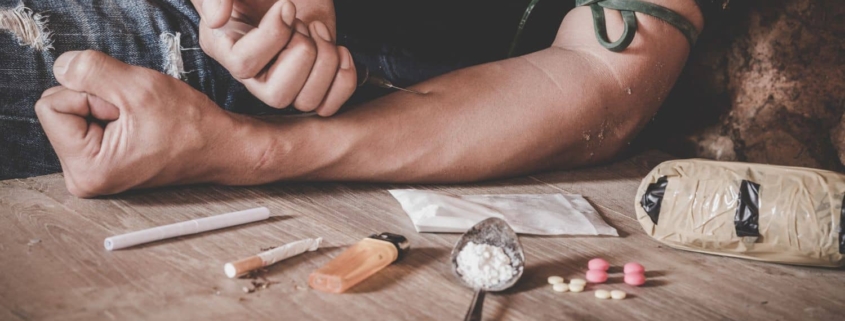What is Chronic Relapse and What Can You Do About it?
When you get sober from alcohol or drugs, you have to adopt an entirely new lifestyle. This can be extremely difficult, especially if you struggled with addiction for years. Making permanent and lasting changes in your life can be incredibly hard when you become used to living a certain way for a long time.
Unfortunately, many people who struggle with addiction deal with chronic relapses. According to the National Institute of Drug Abuse (NIDA), the addiction relapse rate is between 40 to 60%.[1] This means that about half of the people who recover from addiction will relapse at some point.
If you deal with chronic relapses, that means that you have gotten sober and returned to substance abuse more than once. While relapse is relatively common, there are ways to prevent it from happening again.
What Causes Chronic Relapse?
When you relapse after a period of sobriety, it is an indication that there is an underlying issue you need to address. Addiction relapse can be caused by many different factors, including your environment, undiagnosed mental illnesses, and even a lack of support.
The main causes of chronic relapse in addiction recovery include:
Untreated Mental Health Conditions
One of the most common causes of chronic relapse is untreated mental health conditions. When you continually suffer from relapses, it’s a clear sign that there is an underlying issue you need to address. If you find yourself returning to substance abuse to cope with uncomfortable feelings, emotions, or psychological symptoms, you could be dealing with an undiagnosed mental illness.
Common mental health conditions to co-occur with addiction include:[2]
- Anxiety and mood disorders
- Schizophrenia
- Bipolar disorder
- Major depressive disorder (MDD)
- Conduct disorders
- Post-traumatic stress disorder (PTSD)
- Attention deficit hyperactivity disorder (ADHD)
Lack of Support
Lack of support is one of the leading causes of addiction relapse. When you do not have a community to rely on during tough times, you are more likely to turn to alcohol or drugs. As a result, you must find support from family, friends, and other recovering addicts early on in your recovery journey.
Having a supportive community will provide you with the accountability, encouragement, and advice you need to maintain long-term sobriety.
Your Environment
If you live in a home with people who are not sober, you could become tempted to fall back into old habits. For example, if your roommate or family members consistently drink alcohol, you might start to feel like you can, too. Even further, if you live in the same part of town that you used to abuse drugs in, simple things like taking a walk could expose you to past memories that trigger cravings for drugs and alcohol – leading to a relapse.
Unmanaged Cravings
Lastly, many people experience chronic relapses because they never learned how to manage their cravings effectively. Unfortunately, cravings for drugs and alcohol do not go away after detox. Many people continue to experience them even after a year of sobriety.
Since cravings can linger for a long time, you must learn how to deal with them properly. Addiction treatment programs can teach you healthy coping mechanisms to use when a craving arises.
How Can You Prevent Chronic Relapse?
While many people experience multiple relapses throughout their recovery journey, they are avoidable. If you take the necessary steps to prevent a relapse, your chances of maintaining long-term sobriety become much higher.
Examples of ways to prevent chronic relapses include:
- Finding healthy hobbies like exercising, yoga, or sports
- Managing your mental health with therapy and medication
- Building a solid support system
- Staying busy to avoid boredom
- Avoiding people and places that trigger you
- Attending support groups like Alcoholics Anonymous (AA) regularly
- Having a structured schedule for each day
- Continuing to learn new coping mechanisms for addiction recovery to stay fresh in your sobriety
- Engaging in fun, sober-friendly activities that help you learn how to have fun without drugs or alcohol
- Stay in a sober living home that can provide you with the assistance you need to flourish in sobriety outside of a treatment facility
If you relapse, you should never feel ashamed. Relapse is a normal part of the recovery journey. While relapse is normal, it does indicate that you need further support.
If you or a loved one experiences frequent relapses it’s important that you consider re-entering an addiction treatment program. By going back to rehab, you can brush up on your sobriety skills and learn the coping mechanisms necessary to maintain lifelong sobriety from drugs and alcohol.
Find Support Today
If you or a loved one recently suffered from a relapse, it’s time to consider professional help. Re-entering an addiction treatment program and staying in a sober living home can help you build the skills and techniques necessary to maintain long-term sobriety from addiction.
To learn about our recovery programs or find help for yourself or a loved one, please contact New You Sober Living today.
References:
- The National Institute of Drug Abuse (NIDA): The Science of Addiction Treatment and Recovery, Retrieved August 2023 From https://nida.nih.gov/publications/drugs-brains-behavior-science-addiction/treatment-recovery
- The National Institute of Drug Abuse (NIDA): Co-Occurring Disorders and Other Health Conditions, Retrieved August 2023 From https://www.samhsa.gov/medications-substance-use-disorders/medications-counseling-related-conditions/co-occurring-disorders




Leave a Reply
Want to join the discussion?Feel free to contribute!